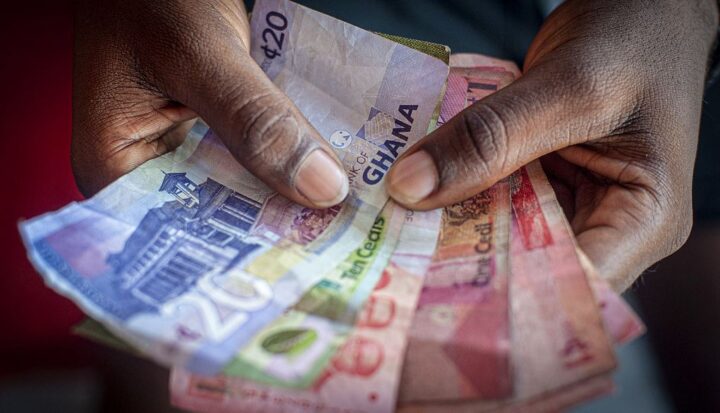The Ghanaian government has banned spending and transacting businesses in foreign currencies in the country.
The Central Bank of Ghana disclosed this in a statement issued on Thursday, warning citizens and companies to stop transacting business, pricing goods and services and advertising in foreign currencies.
According to the country’s apex bank, it is illegal for individuals, companies, institutions, and others to engage in foreign exchange business without an appropriate licence from the regulator.
“Engaging in foreign exchange business without a licence issued by Bank of Ghana; or pricing, advertising, receipting or making payments for goods and services in foreign currency in Ghana, without written authorisation from Bank of Ghana,” the statement reads.
Advertisement
“Such violations are punishable on summary conviction by a fine of up to seven hundred (700) penalty units or a term of imprisonment of not more than eighteen months(18) or both.”
The bank also cautioned the public to stop transacting business from the black market.
“Bank of Ghana hereby cautions the general public to desist from dealing in illegal forex activities (black market transactions), pricing, advertising, receipting or making payments for goods and services in foreign currency in Ghana, without the requisite licence or authorization from Bank of Ghana,” it added.
Advertisement
“The Public is hereby notified that the sole legal tender in Ghana is the Ghana Cedi.
“The Bank of Ghana, in collaboration with the National Security and Law Enforcement Agencies, will clamp down on illegal foreign exchange operations. All offenders shall be dealt with in accordance with the law.”
The Bank of Ghana said it has collaborated with the national security and law enforcement agencies to clamp down on illegal foreign exchange operations.
The country has been trying to manage its present economic hardship.
Advertisement
In March, the government announced a 30% salary cut for its appointees to mitigate economic hardship.
Add a comment







